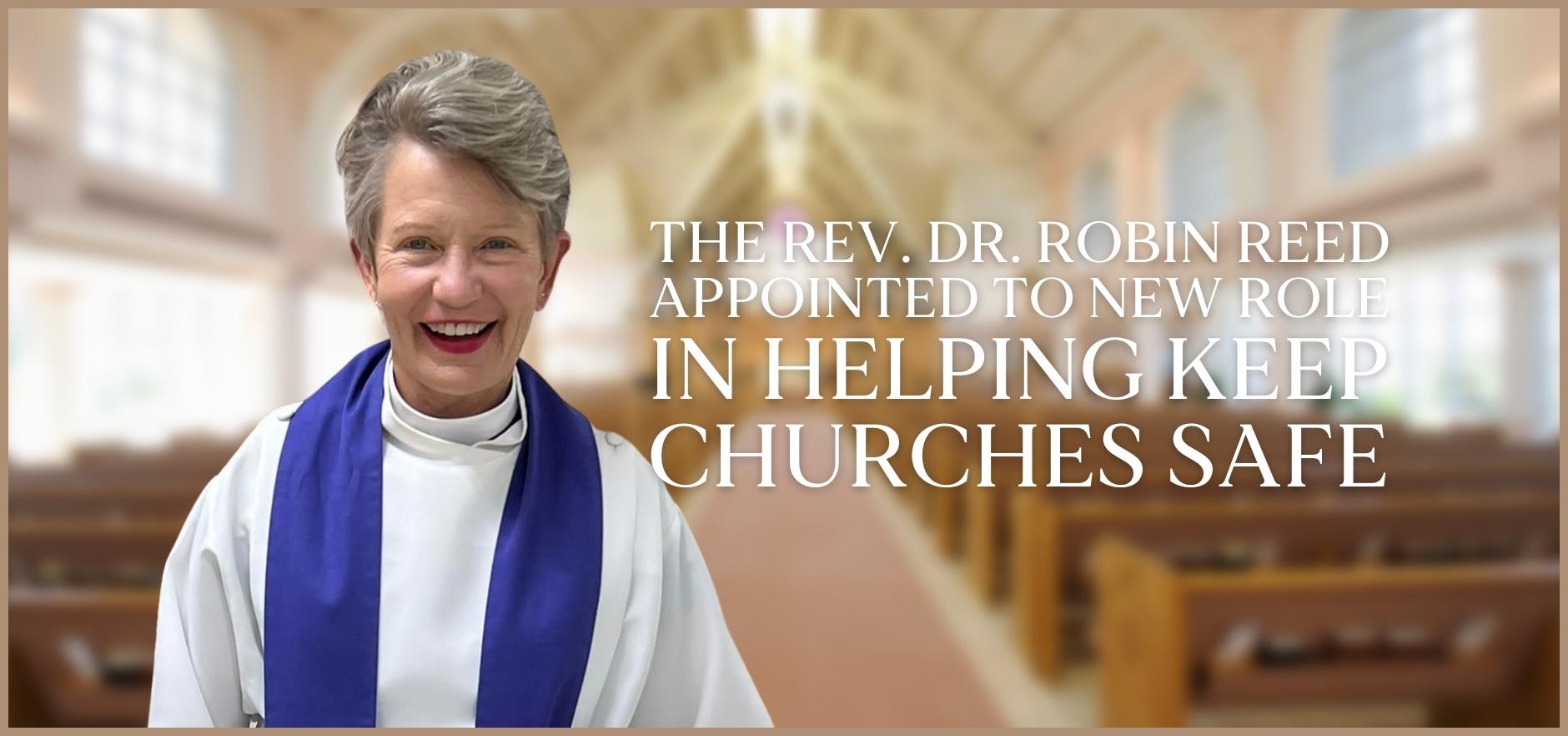Clergy misconduct: No church wants it to happen, yet it does. Every church wants to prevent it, yet can’t do so alone. The Rt. Rev. Dr. Justin S. Holcomb’s decision to appoint the Rev. Dr. Robin Reed, rector of St. Francis of Assisi, Lake Placid, as an additional Title IV intake officer for the Diocese of Central Florida represents a concerted effort to deal appropriately with this critical issue. Reed, a second-career priest with years of experience as a clinical psychologist, considers it “an honor” to join the Rev. Canon Dr. Dan Smith, canon to the ordinary, in this critical role.
“Bishop Holcomb and I both have extensive experience in the world of domestic violence and pastoral abuse, and with Dr. Reed’s help, we are going to do everything we can to make sure that the Diocese of Central Florida is first of all, a safe place for all people,” Smith said. “And secondly, we will work to respond appropriately to any alleged incidences of domestic violence or other types of abuse in pastoral relationships.”
Part of the ways they will accomplish this, Smith said, is through the process mandated by Title IV. Per the Office of Public Affairs of The Episcopal Church, “‘Title IV’ refers to the section of The Episcopal Church’s canons (laws) that addresses the grounds and processes for ‘ecclesiastical discipline,’ a canonical process adopted by the Church to encourage accountability, reconciliation, and pastoral response when a member of its clergy (deacons, priests, or bishops) [is] accused of misconduct.” The process for dealing with alleged misconduct by a bishop goes through the Disciplinary Board for Bishops, but each diocese is responsible for dealing with matters involving its priests and deacons.
“Title IV is primarily about clergy leadership and the discipline they have,” Smith said. “Churches and leaders must understand that it’s essential for clergy to maintain healthy boundaries in their pastoral relationships, whether in the use of church funds, relationships with individuals or the relationship with the church as a whole. … Title IV is all about clergy leadership understanding the boundaries by which they live, work and minister. If and when those boundaries are broken in some way, we need to understand what that means: A trust has been broken, and that needs to be corrected.”
Reed agrees. “Title IV is a process that reflects that the diocese – under the direction of the bishop – wants to be aware, wants to be sensitive, wants to provide support and examination, all in the context of recognizing that human beings, even priests and deacons, make mistakes.”
Smith also emphasized the baptismal rather than punitive nature of Title IV, which recognizes in Canon 1 that both baptism and ordination call believers in general, and clergy in particular, to holiness of life and accountability to one another. “We need to understand that it’s about restoration, forgiveness, restoring a past relationship and making sure that we’re back inside of those boundaries if we ever went outside them,” he said.
As intake officers, he and Reed represent the first step in the Title IV process, Smith said. “Our job is to listen carefully to the person who’s making the complaint and to do an initial investigation to discover whether they believe the complaint to be credible. ‘Credible’ is an important word. It doesn’t necessarily mean that we’ve found the charges are all true; it means we believe there’s enough there that needs to be looked at further. … The intake officer has the initial relationship with whomever the victims are.”
Reed will be a vital addition to the Title IV Team, he said, adding that her role will include assisting him in providing training for prospective ordinands, clergy and lay leadership.
“Dr. Reed brings to us significant experience, resources, education and wisdom that we believe will make her an excellent intake officer, with her background in counseling, her many years of private practice in the world of therapy as well as her theological education and the fact that she’s an outstanding priest in our diocese,” he explained. “She brings an expertise to the table that will be invaluable.”
Reed, who has her master’s and Ph.D. in counseling psychology from The Ohio State University, applied her counseling expertise as a U.S. Naval officer, at a college counseling center, for the Veterans Administration, in private practice and for the School of Theology at Sewanee prior to her 2022 ordination. She appreciates the diocese’s wisdom in adding a woman as one of its intake officers, she said. “Oftentimes, people feel more comfortable with one gender over another. We want to be sensitive to that. … I’m very willing to travel and be present with people. I believe we owe them that.”
“I pray that God will empower me to create the safe spaces to communicate to whomever I’m sitting with that I hear them, I understand them and I hear what they’re saying,” she added. “It’s so important for people to be seen and to be heard and to be understood. … I pray that I can, with God’s help, created a place of safety, of connection.”

